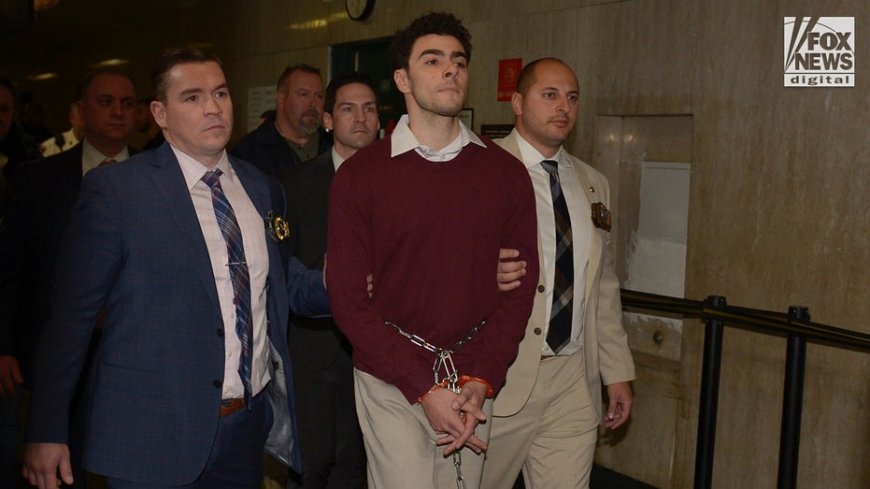Ivy League suspect in UnitedHealthcare CEO's killing pleads not guilty
Luigi Mangione, the suspect accused of murdering UnitedHealthcare CEO Brian Thompson on Dec. 4 in Manhattan, pleaded not guilty in a Manhattan criminal court on Monday morning.

Luigi Mangione, the suspect accused of murdering UnitedHealthcare CEO Brian Thompson on Dec. 4 in Manhattan, pleaded not guilty in a New York State court in Manhattan on Monday morning.
Mangione, 26, was arraigned on 11 state charges, including murder in the first degree, murder in the second degree as a crime of terrorism, and multiple weapons charges. If convicted on the most serious charge, he could face up to life in prison without parole.
The charges include one count of murder in the first degree, a class A-I felony; two counts of murder in the second degree, a class A-I felony; two counts of criminal possession of a weapon in the second degree, a class C felony; four counts of criminal possession of a weapon in the third degree, a class D felony; one count of criminal possession of a weapon in the fourth degree, a class E felony; and one count of criminal possession of a forged instrument in the second degree, a class D felony.
Mangione’s attorney, Karen Friedman Agnifilo, claimed during the court appearance that statements made by government officials, such as New York City Mayor Eric Adams, were putting her client's right to a fair trial in jeopardy.
"I’m very concerned about my client’s right to a fair trial," Agnifilo said, raising further concerns over Mangione’s treatment since he arrived in New York City.
"He’s a young man and he’s being treated like a human ping pong ball" between two warring jurisdictions, Agnifilo said, adding that the overwhelming police presence at his arrival in New York City on Thursday was the worst perp walk she’d ever seen.
"This has to stop and my client is entitled to a fair trial and presumption of innocence," Agnifilo said, vowing to fight the charges.
Mangione will remain in federal custody until a transfer is worked out between state and federal authorities. His next court date was scheduled for Feb. 21.
As Mangione departed the court alongside an escort of police, he appeared to raise his eyebrows and shake his head in response to a question from the media.
Protesters were seen outside the courthouse chanting "free Luigi" and holding signs that read: "United States healthcare stole my livelihood prosecute, malicious profiteers" and "family court has blood on their hands."
Since Mangione's capture, both his alleged actions and physical appearance captivated users on social media, which erupted with positive posts about the murder suspect.
New York prosecutors say Mangione plotted to travel to New York, find Thompson, a Minnesota resident in town for UnitedHealthcare's annual shareholder conference, and kill him. Mangione allegedly shot Thompson from behind with a 3D-printed ghost gun and suppressor.
Thompson was appointed the CEO of UnitedHealthcare in April 2021. He is survived by his wife Paulette "Pauley" Thompson, 51, and their two children.
Prosecutors say Mangione fled New York City within an hour after the crime and traveled to Altoona, Pennsylvania.
Altoona police arrested Mangione in a McDonald's five days later on Dec. 9, after receiving a tip from an employee. The suspect allegedly presented local police with a fake ID and appeared to start shaking when they asked if he had been in New York recently.
Officials also found a handwritten manifesto condemning the health care industry, as NYPD Chief of Detectives Joseph Kenny previously told Fox News. The manifesto specifically mentioned UnitedHealthcare.
While officials have not commented on an official motive, the public has speculated that the suspect had strong grievances with both the health care and insurance industries.
Fox News' Maria Paronich, Grace Taggart and Audrey Conklin contributed to this report.


























































